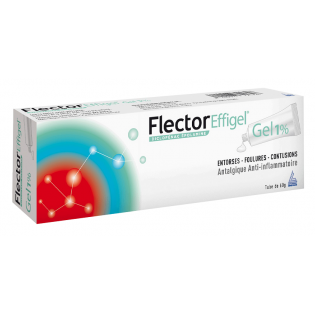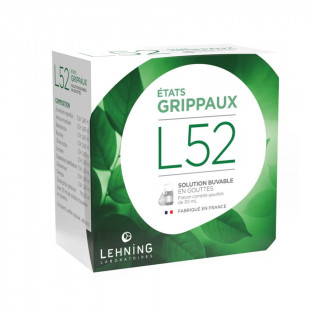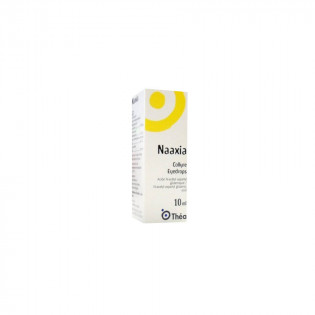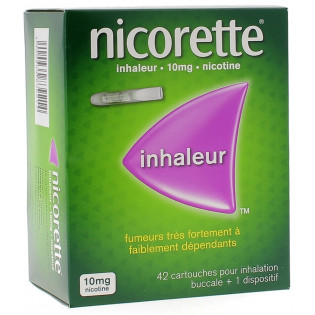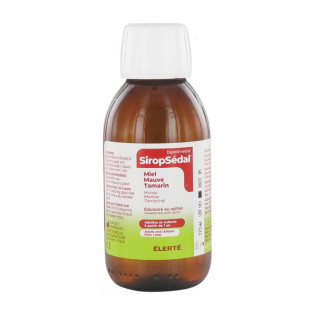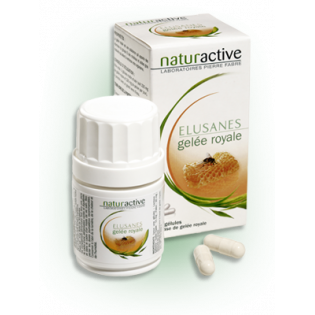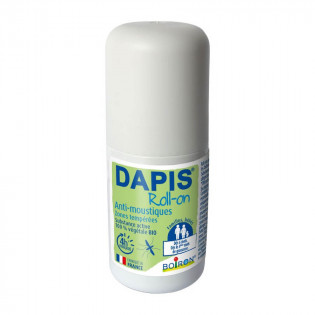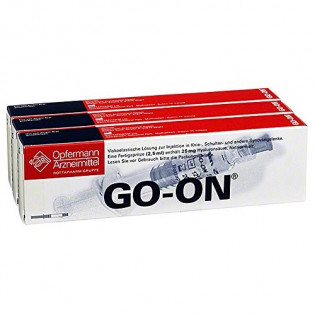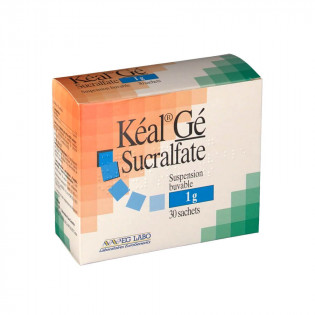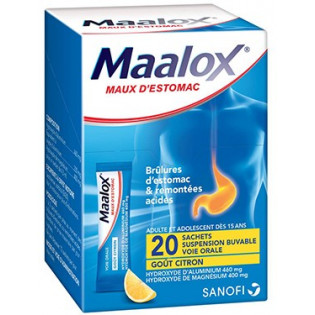In this manual :
1. WHAT IS SPEDIFEN 400 mg, film-coated tablet AND WHAT IS IT USED FOR?
2. WHAT YOU SHOULD KNOW BEFORE TAKING SPEDIFEN 400 mg, film-coated tablet
3. HOW DO I TAKE SPEDIFEN 400 mg, film-coated tablet?
4. WHAT ARE THE POSSIBLE SIDE EFFECTS?
5. HOW DO I USE SPEDIFEN 400 mg, film-coated tablet?
6. ADDITIONAL INFORMATION
1. WHAT IS SPEDIFEN 400 mg, film-coated tablet AND WHAT IS IT USED FOR?
Pharmacotherapeutic class
OTHER ANALGESICS AND ANTIPYRETICS
This medicine contains a non-steroidal anti-inflammatory drug: ibuprofen. It is indicated in adults and children weighing more than 30 kg (approximately 11-12 years of age) for the short-term treatment of fever and/or pain such as headaches, flu-like conditions, toothache, aches and pains and painful periods.
It is indicated in adults, after at least one medical opinion, in the treatment of mild to moderate migraine attacks, with or without aura.
2. WHAT YOU SHOULD KNOW BEFORE TAKING SPEDIFEN 400 mg, film-coated tablet
List of information needed before taking the medicine
If your doctor has informed you of an intolerance to certain sugars, contact him/her before taking this medicine.
Never take SPEDIFEN 400 mg, film-coated tablet in the following cases:
- after 5 months of pregnancy (24 weeks of amenorrhea),
- a history of allergy or asthma triggered by this or related drugs, including other non-steroidal anti-inflammatory drugs, acetylsalicylic acid (aspirin),
- history of allergy to other components of the tablet,
- history of gastrointestinal bleeding or ulcers from previous NSAID therapy,
- active or recurrent ulcer or bleeding from the stomach or intestine,
- ongoing gastrointestinal hemorrhage, brain hemorrhage or other bleeding,
- severe liver disease,
- severe kidney disease,
- severe heart disease,
- systemic lupus erythematosus.
IN CASE OF DOUBT, IT IS ESSENTIAL TO ASK YOUR DOCTOR OR PHARMACIST FOR ADVICE.
Precautions for use; special warnings
Take special precautions with SPEDIFEN 400 mg, film-coated tablet:
At high doses, greater than 1200 mg/day, this drug has anti-inflammatory properties and may cause the sometimes serious side effects seen with non-steroidal anti-inflammatory drugs.
Drugs such as SPEDIFEN 400 mg, film-coated tablet may increase the risk of heart attack ("myocardial infarction") or stroke. The higher the dose and the longer the duration of treatment, the greater the risk.
Do not exceed the recommended doses or duration of treatment.
If you have heart problems, have had a stroke, or think you may have risk factors for a stroke (for example, high blood pressure, diabetes, high cholesterol, or smoking), please talk to your doctor or pharmacist.
Diagnosis and monitoring of migraine attacks in children require medical advice.
Special warnings
If you are a woman, SPEDIFEN 400 mg film-coated tablets may impair your fertility. It is not recommended for use in women who wish to conceive a child. In women who have difficulty conceiving or in whom reproductive tests are being performed, please talk to your doctor or pharmacist before taking SPEDIFEN 400 mg Film-coated Tablets.
Elderly subjects have a higher risk of adverse events, particularly gastrointestinal bleeding, ulcers and perforations. Renal, hepatic and cardiac function should be closely monitored. The dosage should be kept as low as possible for the shortest period of time necessary to relieve symptoms.
The use of this drug is not recommended in patients with fructose intolerance, glucose-galactose malabsorption syndrome or sucrase/isomaltase deficiency (rare hereditary diseases).
This medicine contains sodium. This medicine contains 83 mg of sodium per tablet. To be taken into account in patients controlling their dietary sodium intake.
BEFORE USING THIS MEDICATION, CONSULT YOUR DOCTOR IF YOU HAVE:
- a history of asthma associated with chronic rhinitis, chronic sinusitis or polyps in the nose. The administration of this medicine may cause an asthma attack, especially in some people who are allergic to acetylsalicylic acid (aspirin) or to a non-steroidal anti-inflammatory drug(see section "Never take SPEDIFEN 400 mg, film-coated tablet in the following cases"),
- coagulation disorders, taking an anticoagulant treatment. This medicine may cause serious gastrointestinal manifestations,
- a history of digestive problems (hiatal hernia, digestive haemorrhage, ulcer of the stomach or duodenum),
- heart, liver or kidney disease,
- chicken pox. This medication is not recommended due to exceptional severe skin infections,
- concomitant treatment with other drugs that increase the risk of peptic ulcer or bleeding, for example, oral corticosteroids, antidepressants (those of the SSRI type, i.e. Selective Serotonin Reuptake Inhibitors), drugs that prevent blood clots such as aspirin, or anticoagulants such as warfarin If you have any of these conditions, talk to your doctor before taking SPEDIFEN 400 mg film-coated tablets(see "Taking or using other medicines"),
- if you are taking methotrexate at doses higher than 20 mg per week or pemetrexed(see "Taking or using other medicines").
DURING TREATMENT, IN CASE OF:
- visual disturbances, Warn your doctor,
- gastrointestinal haemorrhage (discharge of blood from the mouth or stools, black stools), STOP THE TREATMENT AND CONTACT A PHYSICIAN OR EMERGENCY MEDICAL SERVICE IMMEDIATELY,
- signs on the skin or mucous membranes that resemble a burn (redness with bullae or blisters, ulcerations), STOP THE TREATMENT AND CONTACT A PHYSICIAN OR EMERGENCY MEDICAL SERVICE IMMEDIATELY,
- signs of allergy to this medicine, including asthma attack or sudden swelling of the face and neck(see "What are the possible side effects?"), STOP THE TREATMENT AND CONTACT A PHYSICIAN OR EMERGENCY MEDICAL SERVICE IMMEDIATELY.
|
This medicine contains a non-steroidal anti-inflammatory drug: ibuprofen.
You should not take other medicines containing non-steroidal anti-inflammatory drugs (including selective cyclooxygenase 2 inhibitors) and/or acetylsalicylic acid (aspirin) with this medicine. Carefully read the package inserts of other medications you are taking to make sure you are not taking non-steroidal anti-inflammatory drugs and/or acetylsalicylic acid (aspirin).
|
Interactions with other medications
Taking or using other medications:
PLEASE TELL YOUR DOCTOR OR PHARMACIST IF YOU ARE TAKING OR HAVE RECENTLY TAKEN ANY OTHER MEDICATION, EVEN IF IT WAS OBTAINED WITHOUT A PRESCRIPTION.
SOME MEDICINES CANNOT BE USED AT THE SAME TIME, WHILE OTHER MEDICINES REQUIRE SPECIFIC CHANGES (E.G. IN DOSE).
Always tell your doctor, dentist or pharmacist if you are taking any of the following medicines in addition to SPEDIFEN 400 mg, film-coated tablet:
- aspirin (acetylsalicylic acid) or other non-steroidal anti-inflammatory drugs
- corticosteroids
- oral anticoagulants such as warfarin, injectable heparin, antiplatelet agents or other thrombolytics such as ticlopidine
- lithium
- methotrexate
- angiotensin-converting enzyme inhibitors, diuretics, beta-blockers and angiotensin II antagonists
- certain antidepressants (selective serotonin reuptake inhibitors)
- pemetrexed
- ciclosporin, tacrolimus.
Interactions with food and drink
Not applicable.
Interactions with herbal products or alternative therapies
Not applicable.
Use during pregnancy and lactation
ASK YOUR DOCTOR OR PHARMACIST FOR ADVICE BEFORE TAKING ANY MEDICATION.
Pregnancy
During the first trimester of pregnancy (12 weeks of amenorrhea, i.e. 12 weeks after thefirst day of your last menstrual period), your doctor may prescribe this medicine if necessary.
From 2.5 to 5 months of pregnancy (12 to 24 weeks of amenorrhea), this medicine should only be used on the advice of your doctor and taken for short periods. Prolonged use of this medication is strongly discouraged.
If you are more than 5 months pregnant (more than 24 weeks of amenorrhea), you should NOT take this medicine under any circumstances, as its effects on your child may have serious consequences, particularly in terms of cardiopulmonary and renal health, even if you take it only once.
If you have taken this medicine when you are more than five months pregnant, please talk to your obstetrician-gynecologist so that appropriate monitoring can be offered to you.
Breastfeeding
This medicine passes into breast milk. As a precautionary measure, it should not be used during breastfeeding.
Not applicable.
Effects on ability to drive and use machines
Driving and use of machinery
In rare cases, dizziness and blurred vision may occur when taking this medicinal product.
List of excipients with a known effect
Important information about some of the ingredients of SPIFEN 200 mg, tablet:
This medicine contains sodium and sucrose.
3. HOW TO TAKE SPEDIFEN 400 mg, film-coated tablet
Instructions for proper use
The occurrence of adverse reactions can be minimized by using the lowest possible dose for the shortest time necessary to relieve symptoms.
Dosage, Method and/or route(s) of administration, Frequency of administration and Duration of treatment
Method of administration
Oral use.
Swallow the tablet, without chewing, with a large glass of water.
The tablets should preferably be taken with a meal.
Dosage
Painful and/or febrile conditions
Suitable for adults and children weighing over 30 kg (11-12 years).
The usual dosage is one 400 mg tablet per dose, repeated if necessary, without exceeding three 400 mg tablets per day (1200 mg per day).
The 400 mg tablet is reserved for pain or fever that is more intense or not relieved by a 200 mg ibuprofen tablet.
Regular doses help to avoid fever or pain peaks. They should be taken at least 6 hours apart.
As the elderly are at increased risk of adverse effects, use the lowest possible dose for the shortest time necessary to relieve symptoms.
Do not exceed recommended doses or duration of treatment (3 days for fever, 5 days for pain).
The maximum dosage is 3 tablets per day (1200 mg).
In case of migraine attack
RESERVED FOR ADULTS
1 tablet at 400 mg as soon as possible after the onset of the attack.
If a patient is not relieved after the first dose, a second dose should not be taken during the same attack. However, the attack may be treated with another non-steroidal anti-inflammatory drug or aspirin.
If the pain recurs, a second dose may be taken provided that an interval of 8 hours is observed between the 2 doses.
If in doubt, ask your doctor or pharmacist for advice.
Duration of treatment
|
The duration of use is limited to:
- 3 days in case of fever,
- 3 days in case of migraine,
- 5 days in case of pain.
|
If the pain persists for more than 5 days or the fever for more than 3 days, or if they worsen or if another disorder occurs, inform your doctor.
In case of a migraine attack, the duration of treatment should not exceed 3 days.
If the symptoms persist and worsen or if new symptoms appear, ask your pharmacist or doctor for advice.
If you feel that the effect of SPEDIFEN 400 mg film-coated tablets is too strong or too weak: consult your doctor or pharmacist.
Symptoms and instructions in case of overdose
If you have taken more SPEDIFEN 400 mg film-coated tablets than you should have: in case of accidental overdose, or intoxication, STOP THE TREATMENT AND SEEK MEDICAL ADVICE QUICKLY.
Instructions in case of missed dose(s)
If you forget to take SPEDIFEN 400 mg, film-coated tablet:
Do not take a double dose to make up for the one you forgot to take.
Risk of withdrawal syndrome
Not applicable.
4. WHAT ARE THE POSSIBLE SIDE EFFECTS?
Description of side effects
Like all medicines, SPEDIFEN 400 mg Film-coated Tablets may have side effects, although not everyone is likely to have them.
Medicines such as SPEDIFEN 400 mg Film-coated Tablets may increase the risk of heart attack (myocardial infarction) or stroke.
Allergic reactions may occur:
- skin: rash, itching, swelling, aggravation of chronic hives,
- respiratory: asthma-like attack,
- general: sudden swelling of the face and neck (angioedema).
In rare cases, gastrointestinal bleeding may occur(see "Special precautions with SPEDIFEN 400 mg film-coated tablets"). The higher the dosage used, the more frequent it is.
Exceptionally, headache with nausea, vomiting and neck stiffness may occur.
In exceptional cases, severe skin infections have been observed with chickenpox.
Very exceptionally, bullous manifestations of the skin or mucous membranes (burning sensation with redness and bullae, blisters, ulcerations) may occur.
In all these cases, treatment must be stopped immediately and your doctor informed.
During treatment, the following may occur
- digestive disorders: stomach ache, vomiting, nausea, diarrhoea, constipation,
- exceptionally dizziness, headaches, rare visual disturbances, significant decrease in urine output, kidney failure.
In all cases, you must inform your doctor.
- Exceptionally, changes in the liver or blood count (decrease in white or red blood cells) have been observed and may be serious.
If you notice any side effects not mentioned in this leaflet, or if any side effects become serious, please tell your doctor or pharmacist.
5. HOW TO USE SPEDIFEN 400 mg, film-coated tablet
Keep out of the reach and sight of children.
Do not use SPEDIFEN 400 mg film-coated tablets after the expiry date on the carton.
There are no special storage precautions.
If necessary, warnings against certain visible signs of deterioration
Do not use SPEDIFEN 400 mg film-coated tablets if you notice any visible signs of deterioration.
Medicines should not be thrown down the drain or put in the garbage. Ask your pharmacist what to do with unused medication. This will help protect the environment.
6. ADDITIONAL INFORMATION
Full list of active ingredients and excipients
What does SPEDIFEN 400 mg, film-coated tablet contain?
The active substance is:
Ibuprofen ........................................................................................................................................ 400 mg
For one film-coated tablet.
The other components are:
Arginine, sodium bicarbonate, crospovidone, magnesium stearate, hypromellose, sucrose, titanium dioxide (E171), macrogol 4000.
Pharmaceutical form and content
What is SPEDIFEN 400 mg, film-coated tablet and what does it contain?
This medicine is presented as a film-coated tablet.
Box of 6, 10, 12 or 15 tablets.
Name and address of the marketing authorisation holder and of the manufacturing authorisation holder responsible for batch release, if different
Holder
ZAMBON FRANCE
13, RUE RENE JACQUES
92138 ISSY-LES-MOULINEAUX CEDEX
Operator
ZAMBON FRANCE
13, RUE RENE JACQUES
92138 ISSY-LES-MOULINEAUX CEDEX
Manufacturer
ZAMBON SPA
VIA DELLA CHIMICA, 9
36100 VICENZA
ITALY
Names of the medicinal product in the Member States of the European Economic Area
Not applicable.
Date of approval of the package leaflet
The last date of approval of this package insert was {date}.
MA under exceptional circumstances
Not applicable.
Detailed information on this medicinal product is available on the website of Afssaps (France).
Information reserved for health professionals
Not applicable.
HEALTH ADVICE/EDUCATION
"WHAT TO DO IN CASE OF FEVER":
Normal body temperature varies from one individual to another and is between 36.5°C and 37.5°C. A rise of more than 0.8°C is considered a fever.
Adults and children over 30 kg (11-12 years): If the symptoms are too severe, you can take a medicine containing ibuprofen in the indicated dosage.
With this medicine, the fever should fall quickly. However:
- if other signs appear (such as a rash),
- if the fever lasts more than 3 days or gets worse,
- if the headache becomes severe, or in case of vomiting,
CONSULT YOUR DOCTOR IMMEDIATELY.
"WHAT TO DO IN CASE OF PAIN":
- If there is no improvement after 5 days of treatment.
- If the pain returns regularly.
- If it is accompanied by fever.
- If it wakes you up at night.
CONSULT YOUR DOCTOR IMMEDIATELY.
"WHAT TO DO IN CASE OF MIGRAINE":
What is a migraine?
Migraine is a disease which results in headaches of strong intensity, occurring by crises, lasting from 4 to 72 hours and being able to repeat several times per month. It can sometimes be preceded by visual and/or sensory signs called aura (impression of brightness or flickering of the visual field, illusion that a fly seems to cross the visual field...).
Discuss these findings with your doctor so that he or she can confirm the diagnosis and agree with you on the most appropriate treatment.
How to manage the attacks?
Certain elements such as fatigue, stress, food (chocolate, alcohol...), sensory factors (noise, flashing light, perfumes, etc.) or physiological factors such as menstruation are likely to trigger migraine attacks.
Knowing the triggers and the warning signs that may precede the attack allows treatment to be started early (ideally within an hour of its onset and while it is still mild). The earlier the treatment is taken, the more effective it is and often the shorter it lasts (early treatment limits migraine recurrence).
Writing down in a diary or notebook when your attacks occur and how long they last, the intensity of the pain, any triggers and the medication used for each attack will help your doctor to assess your migraine and its treatment.
A failure on the first attack does not necessarily mean a failure on the following attacks. The effectiveness of ibuprofen 400mg should be evaluated over 2 or 3 attacks. To help you, you can answer the following questions and discuss them with your doctor and pharmacist.
When should you see your doctor?
Although most headaches are benign, you should not ignore the fact that they can be a symptom of sometimes serious conditions that require specialized treatment.
You should consult your doctor in the following cases:
- any first attack of headache,
- the onset of headaches after the age of 50,
- triggered by physical effort, sexual intercourse, coughing,
- installation of a headache in "thunderclap": sudden appearance of a headache from one second to the next,
- appearance of unusual signs accompanying the headache such as
o Balance problems,
o Stiffness in the neck making neck movements difficult or impossible,
o double vision, blurred vision,
o Difficulty speaking,
o decreased muscle strength, numbness in the arms and legs.
- body temperature > 38°C,
- worsening of headaches,
- headache that is not of its usual character,
- appearance of continuous headaches.
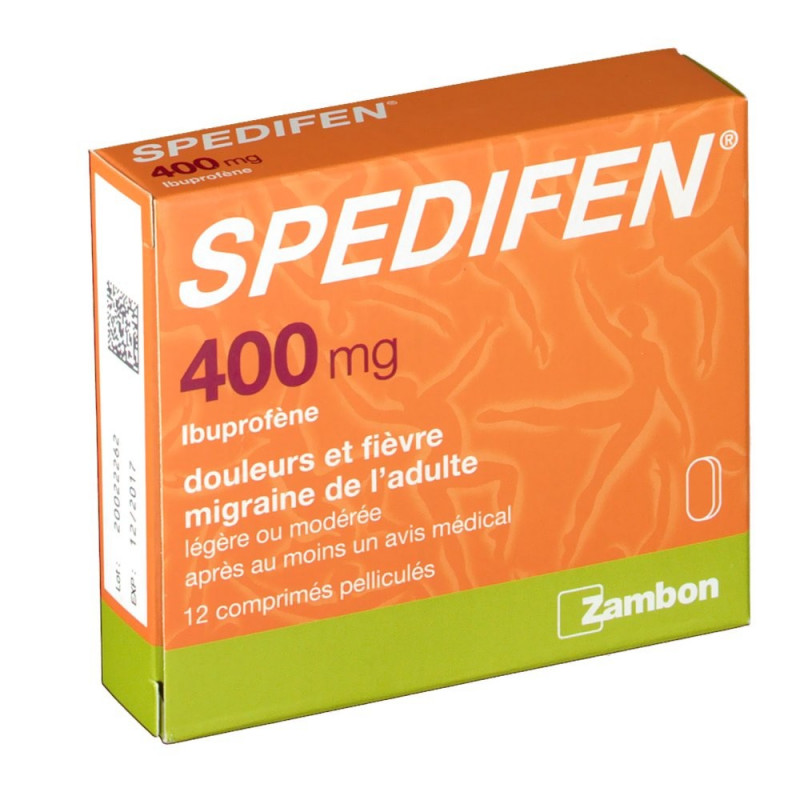
 Français
Français English
English








